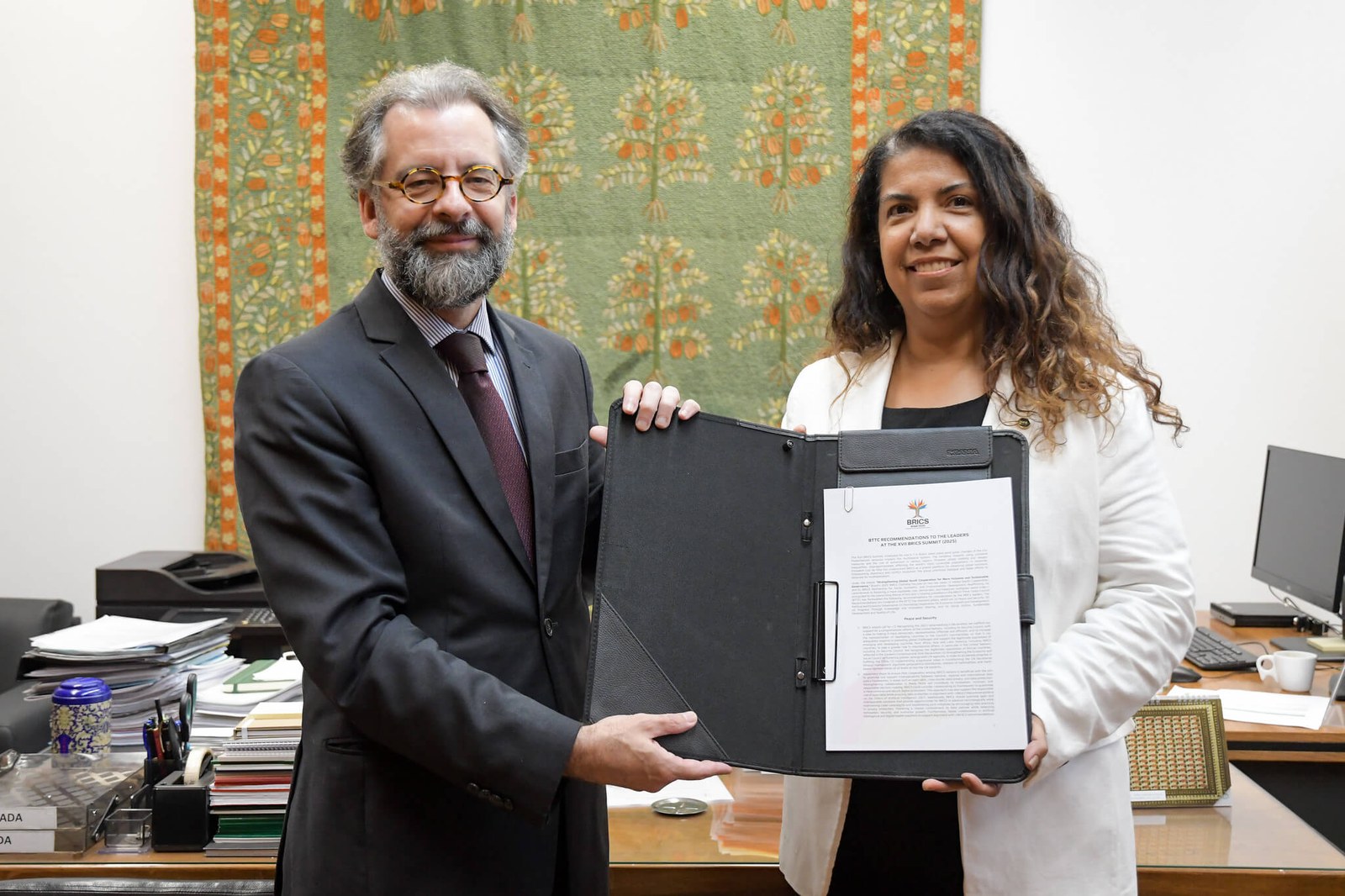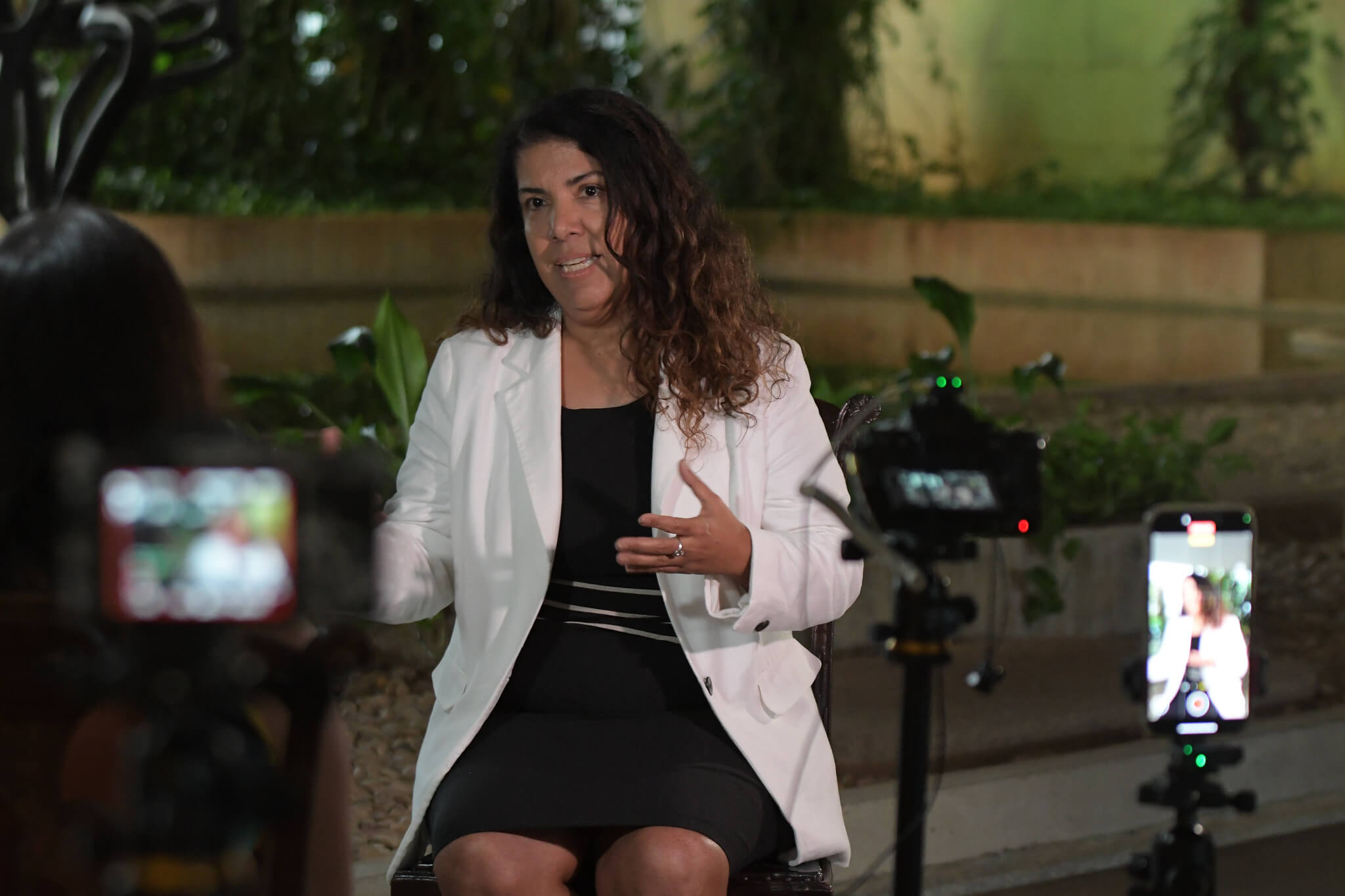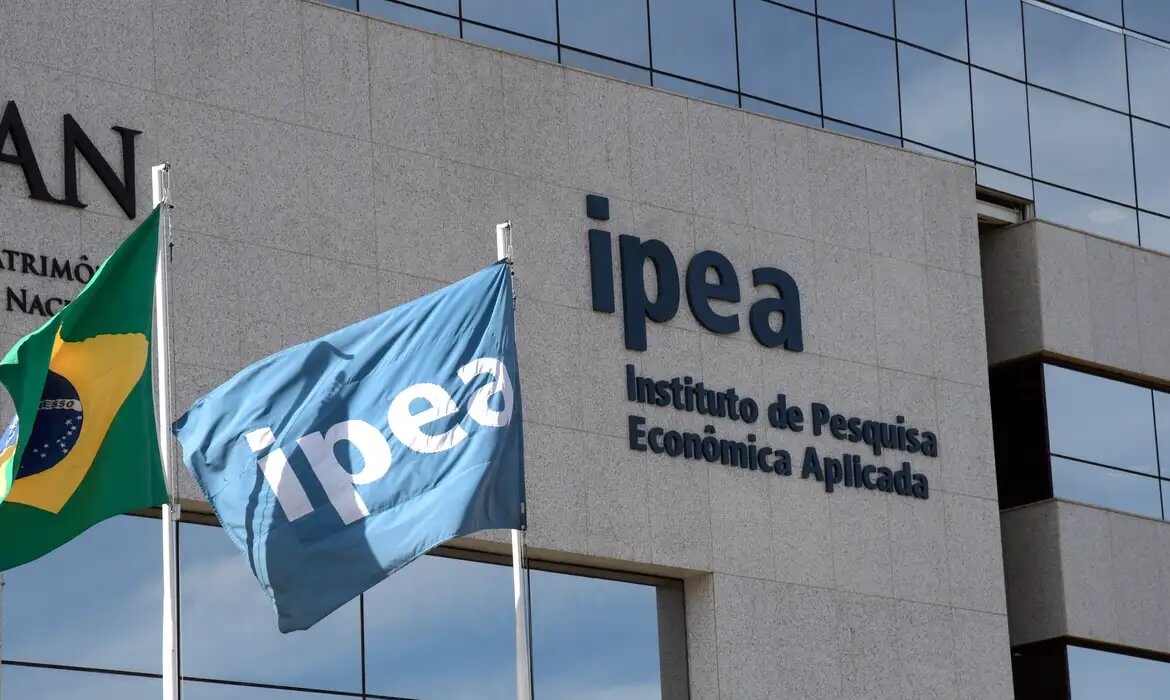Think tanks' contribution may strengthen BRICS multilateralism, argues IPEA President
In an exclusive interview, Luciana Servo, President of the Institute for Applied Economic Research (IPEA), highlighted the key points of the think tank recommendation report submitted to Ambassador Mauricio Lyrio.

By Franciéli Barcellos de Moraes | francieli.moraes@presidencia.gov.br
With contributions aligned with the six priority pillars of Brasil’s BRICS Presidency, the coordination of the BRICS Think Tank Council (BTTC) delivered to Brazilian Sherpa, Ambassador Mauricio Lyrio, on Tuesday (8), a recommendation report grounded in best practices and evidence-based approaches.
During a meeting held in Brasília, Federal District, Luciana Servo, President of Brasil’s Institute for Applied Economic Research (IPEA), which leads the group, presented a report produced from work conducted during the first quarter of the year. The BRICS Think Tank Council (BTTC) fosters the exchange of ideas among researchers, academics, and research centers in search of solutions across the grouping’s various areas of dialogue. Under the People-to-People (P2P) pillar, the network of research institutes was the first to submit its contribution.
In February, IPEA — which is coordinating both the BRICS Think Tank Council (BTTC) and the BRICS Think Tank Finance Network (BTTNF) this year — brought together more than 40 experts for five thematic workshops, where the recommendations were consolidated.
In an exclusive interview with BRICS Brasil, Luciana Servo shared highlights from the report, reflected on the role of research institutes in the group’s history, commented on the involvement of new member countries, and outlined the upcoming think tank agenda ahead of the Leaders’ Summit in July. Check it out:
To begin, for those unfamiliar with the topic, how would you explain what a think tank is?
"What is the great advantage? Think tanks are not public policymakers. In a moment of complex geopolitics, bringing together institutions grounded in knowledge, and able to engage in dialogue with their respective governments, helps those governments establish more meaningful conversations with one another."
I would begin with IPEA, an institution within the Brazilian government. Its role is to produce knowledge, research, and studies to inform decision-making by the Brazilian State. It also generates evidence on which public policies can be based.
Most think tanks around the world — whether governmental or not — play the role of producing knowledge and fostering dialogue on relevant and strategic topics to support their governments, both in national policymaking and in international discussions. These are typically research-based institutions that work with evidence generation, but unlike traditional academic research centers, they are also tasked with engaging in dialogue on public policies and strategic decisions, either within the country or, for example, in dialogue with the private sector and other decision-making bodies.
This year, IPEA holds the presidency of both the BRICS Think Tank Council (BTTC) and the BRICS Finance Think Tank Network (BTTFN). How do these mechanisms differ, and where do their agendas converge?
The BTTC is a broader council that covers a wide range of topics and was the first to be established. It has been meeting since 2013 to discuss recommendations to be submitted to the BRICS presidency. The Council engages with what we call Sherpas. For those who followed the G20, it also had a Sherpa track, led by the Brazilian Ministry of Foreign Affairs. This year’s structure is similar.
The BFTTN, on the other hand, is a very recent mechanism. It was proposed a short while ago, during China’s presidency in 2022, and this year marks the first time it is actually convening to discuss topics more focused on the economy and finance. We are currently defining its working mechanisms, in close dialogue with the Ministry of Finance and Banco Central, to produce inputs — mainly in the form of studies rather than formal recommendations.
Once the mechanism is fully operational, the tendency is that it will also begin to function similarly to the BRICS Think Tank Council (BTTC), with annual meetings and, eventually, the capacity to issue recommendations in finance-related discussions.

We are having this conversation right after you delivered the Council’s contribution report to Ambassador Mauricio Lyrio. What are the highlights of the recommendations received by the Sherpa?
I believe we delivered very effective contributions, including some that are ready to be implemented. BRICS has several mechanisms that have been proposed for quite some time, and once they become operational, they will help reinforce agendas in our country. One example is the global health agenda, which has become particularly relevant—not only since the pandemic, when its importance became very clear but also with the potential to support the development of this group of countries and the multilateral agenda itself.
So, when we discuss how to bring the digital agenda into use in health, public policies, and investment platforms, we are aiming to introduce concrete mechanisms and recommendations that can be implemented in actions within Brasil, but mainly in cooperation among these countries.
And how was the process of drafting this document?
The first thing we should highlight is the fact that, although the Brazilian BRICS Presidency lasts for one year, the delivery of the document in April is meant to support the discussions at the Leaders' Meeting in July. In this sense, one key aspect is how to quickly build consensus among these think tanks in order to produce these recommendations within a very short timeframe. That is a key highlight.
We managed to do two things. First, IPEA led a discussion with national research institutions that are familiar with BRICS and understand the priority topics of the Brazilian Presidency to produce an initial document, which served as the basis for negotiations with the think tanks that are part of the BRICS Think Tank Council (BTTC).
From there, we entered the second phase, involving dialog and building consensus with the Council’s six other think tanks. This process was very enriching from the start, as there was a great acceptance of the initial document that was presented, so we only refined it. We were able to come up with very substantial and important recommendations. We are the first group to make this delivery, which will support the dialogues that Brasil’s Ministry of Foreign Affairs (Ministério das Relações Exteriores /MRE) of Brasil will have with the other Sherpas.
You mentioned that six other institutes participate in the Council. How does one join this formal BRICS think tank mechanism?
Think tanks like IPEA are nominated by their governments. However, the idea is that these think tanks have the autonomy to discuss recommendations, conduct studies, and engage in dialog. This process — particularly now, with the new member countries— involves considering which think tanks will join.
This is the first year that Brasil presides over BRICS after the group’s expansion, with new member countries and partner countries. Could you explain in more detail how IPEA worked with these new representations?
Well, the first thing you do when a new member joins anywhere is show them the environment and introduce them to the mechanism. So, one of IPEA’s roles was to present the BRICS Think Tank Council (BTTC) activities to these countries, along with the other think tanks. So far, Iran and Ethiopia have nominated representatives and participated. They come in, they are introduced to the operational process and to how the dialog is expected to take place. Once this is done, they participate in the discussions just like the countries that have been part of the group for a longer. Ethiopia participated in the entire negotiation process, while Iran submitted recommendations. It is an interaction process that evolves over time.
The Council and sectoral meetings have been active for over a decade, dating back to the second Summit when the group was still BRIC. The think tank mechanisms are now among the most structured in the People-to-People pillar of BRICS. What do you think explains this continued high-quality engagement?
As part of its agenda, the BRICS Think Tank Council (BTTC) organizes the BRICS Academic Forum (B), a platform for experts to discuss strategic issues and cooperation mechanisms among BRICS countries. However, even before the group was formally established, there were already dialogues taking place in the field of diplomatic relations and among expert communities. BRICS was officially formed the following year, but the experience of bringing experts together to exchange ideas and contribute knowledge was already underway.
It was only natural that, over time, this mechanism would be formalized—bringing together institutions capable of informing negotiation processes with their expertise in public policy. What is the great advantage? Think tanks are not public policymakers. In a moment of complex geopolitics, bringing together institutions grounded in knowledge, and able to engage in dialogue with their respective governments, helps those governments establish more meaningful conversations with one another.
It is a very relevant process of continuity, maintaining history even with all the geopolitical changes and shifts in governments. These think tanks preserve the memory of the process and help their own countries, their diplomacies, their leaders, and their presidencies because they have already established prior dialogue mechanisms among themselves.

Once the report is delivered, what other agendas for promoting IPEA within BRICS are expected to take place before the Leaders’ Summit in July?
We will have the FABRICS (BRICS Academic Forum) meeting, which will take place in Brasilia on June 25-26. Both the think tanks that are part of the BRICS Think Tank Council (BTTC) and the BRICS Finance Think Tank Network (BTTNF) will participate in this academic forum, continuing discussions on issues of interest to the BRICS agenda.
We are also currently building discussions with other government institutions, academic institutions, and institutions that the other think tanks bring to Brasil, forming a larger network. It is a moment to bring other institutions, experts, and representatives together for a dialog around BRICS.
So, it is not only a moment of dialog about the recommendations already made but also of producing and expanding knowledge about the group. Furthermore, we have a series of agendas for continuing discussions on the mechanisms, governance discussions, and discussions about other forums that are taking place, such as COP30 itself, to deepen the interaction of BRICS with the Conference.
We will also continue to work on what we call implementation strategies for some of the recommendations that were made. Because, although they were delivered now, the dialog continues.
The second Sherpas' Meeting will take place in Rio de Janeiro at the end of the month, and for the first time, it will include civil society participation—replicating a precedent set by the G20. How significant is it for research institutes to have a seat at the table alongside the Sherpas?
IPEA will be there on April 24, representing the think tanks. And I believe this is a very relevant moment, in which a delivery is made not to the Brazilian Presidency, as we did here, but to all the representatives of the other BRICS countries. It is a moment to expand the influence of these institutions with the Sherpas.
But more than that, during the G20, we learned that this is also a process of creating more legitimacy in these forums. If you bring in the various mechanisms, institutions, and groups contributing to the dialog, you show that they can internalize this agenda in their countries for something larger than what is happening at that moment.
"During the G20, we learned that this is also a process of creating more legitimacy in these forums. If you bring in the various mechanisms, institutions, and groups contributing to the dialog, you show that they can internalize this agenda in their countries for something larger than what is happening at that moment."
So, I am calling this process the knowledge and legitimization of BRICS, not necessarily tied to one presidency or another, but to how this is, in fact, an important process for our country. It is a very relevant moment for dialog, one that qualifies the debate among civil society groups while also qualifying the discussion among the Sherpas.
Finally, is there anything we haven’t addressed that you believe is important to add—either regarding the work of think tanks or BRICS’s role as a voice for the Global South?
I believe we are living through moments in which the multilateral system is being questioned. Brasil has always emphasized that the global conversation must focus on seeking equitable participation, strengthening the United Nations (UN) system, and reinforcing the multilateral system. BRICS, as a group, comes to strengthen this multilateral discussion, not to be a separate conversation.
I believe that this is very concrete in the BRICS discussions, something that also emerged during the G20 discussions: these groups do not replace the multilateral system. On the contrary, by holding these discussions, they advance and reinforce that the multilateralism agenda remains central. The tendency towards these confrontations that we are seeing now, particularly in the area of bilateral trade, has always existed. And that is why multilateral mechanisms exist — they serve as mediation tools. If we do not strengthen these mechanisms, we risk entering into various dispute processes without a mediator.
So, the multilateral system is essential, and the system of groups helps advance these agendas and build consensus. I believe that the BTTC and the BTTNF provide an additional space to support this process.